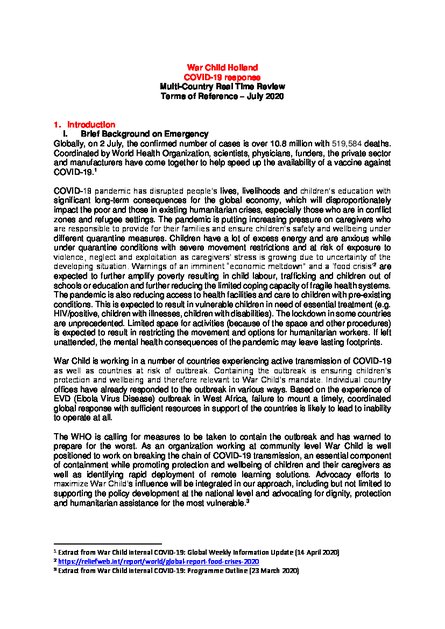
Globally, on 2 July, the confirmed number of cases is over 10.8 million with 519,584 deaths. Coordinated by World Health Organization, scientists, physicians, funders, the private sector and manufacturers have come together to help speed up the availability of a vaccine against COVID-19.1 COVID-19 pandemic has disrupted people’s lives, livelihoods and children’s education with significant long-term consequences for the global economy, which will disproportionately impact the poor and those in existing humanitarian crises, especially those who are in conflict zones and refugee settings. The pandemic is putting increasing pressure on caregivers who are responsible to provide for their families and ensure children’s safety and wellbeing under different quarantine measures. Children have a lot of excess energy and are anxious while under quarantine conditions with severe movement restrictions and at risk of exposure to violence, neglect and exploitation as caregivers’ stress is growing due to uncertainty of the developing situation.
Warnings of an imminent “economic meltdown” and a ‘food crisis’2 are expected to further amplify poverty resulting in child labour, trafficking and children out of schools or education and further reducing the limited coping capacity of fragile health systems. The pandemic is also reducing access to health facilities and care to children with pre-existing conditions. This is expected to result in vulnerable children in need of essential treatment (e.g. HIV/positive, children with illnesses, children with disabilities). The lockdown in some countries are unprecedented. Limited space for activities (because of the space and other procedures) is expected to result in restricting the movement and options for humanitarian workers. If left unattended, the mental health consequences of the pandemic may leave lasting footprints.